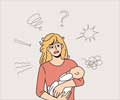Unveiling the impact of Tele MANAS, India's mental health digital service, which has received over 2,00,000 calls since its inception in October 2022.
- Tele MANAS, the digital mental health service in India, has reached a milestone of over 2,00,000 calls from across the country since its launch in October 2022
- The service currently handles over 1,300 calls per day in 20 languages, with the most common concerns being despair, sleep problems, stress, and worry
- The longer-term aim of Tele MANAS is to establish a complete digital mental health network across India, reaching the most vulnerable and inaccessible sections of society
National Tele-Mental Health Program in India: A step towards mental health care for all?
Go to source).
Scaling Up Mental Health Support in India with Tele MANAS
According to the Ministry, the service presently handles over 1,300 calls per day in 20 languages and has 42 functioning Tele MANAS units in 31 states and union territories. Over 1,900 counsellors have been trained to provide first-line support. Furthermore, about 7,000 calls were followed up with callbacks from counsellors, completing the care loop. Callers in need of specialized care are connected with appropriate services and neighboring healthcare facilities.Mental Health Concerns Among Tele MANAS Callers
“A spurt in calls related to exam stress was seen during the exam season. These callers were helped by counsellors with supportive counselling and self-help strategies. Efforts are also made to reach more students/adolescents in various educational institutes,’’ a Ministry official explained. The official added that two-thirds of the callers fall in the 18-45 years age group. “There are a few prank calls also,’’ he said. “Of the two lakh calls, 59.6% were male callers, and 40% were female callers,” Pratima Murthy, Director of, the National Institute of Mental Health and Neuro Sciences (NIMHANS), said. “Nearly 75% of the callers were between 18-45 years of age; 12.5% of the callers were in the 46-64 years age group; and 8% were below 18 years of age.”Dr. Murthy went on to say that 28.8% of the calls were for general emotions of sorrow, while 27.6% were about sleep problems. 20.4% of calls were about worry; 10% were about interpersonal troubles; 9.2% were about violence; and 9.7% of callers expressed a lack of interest in activities.
Tele MANAS: A Comprehensive Digital Mental Health Network
Tele MANAS is being promoted through several media outlets, including print, radio, and social media. The service offers basic counselling and mental health treatments, as well as connections to existing critical services and resources. The Health Ministry stated that while Tele MANAS got two lakh calls in nine months, the longer-term goal is to develop a complete digital mental health network across India, reaching the unreached.The project, introduced by the Health Ministry in the Union Budget for 2022-23, recognises mental health difficulties and is a novel initiative in giving support while retaining callers' anonymity, thereby decreasing the stigma associated with mental health issues in general.
“We want to make mental health services available free of cost to every household and every individual, targeting the most vulnerable and unreached sections of society that may otherwise have gone unnoticed,’’ the official said.
Reference:
- National Tele-Mental Health Program in India: A step towards mental health care for all? - (https://www.ncbi.nlm.nih.gov/pmc/articles/PMC9045352/)
















